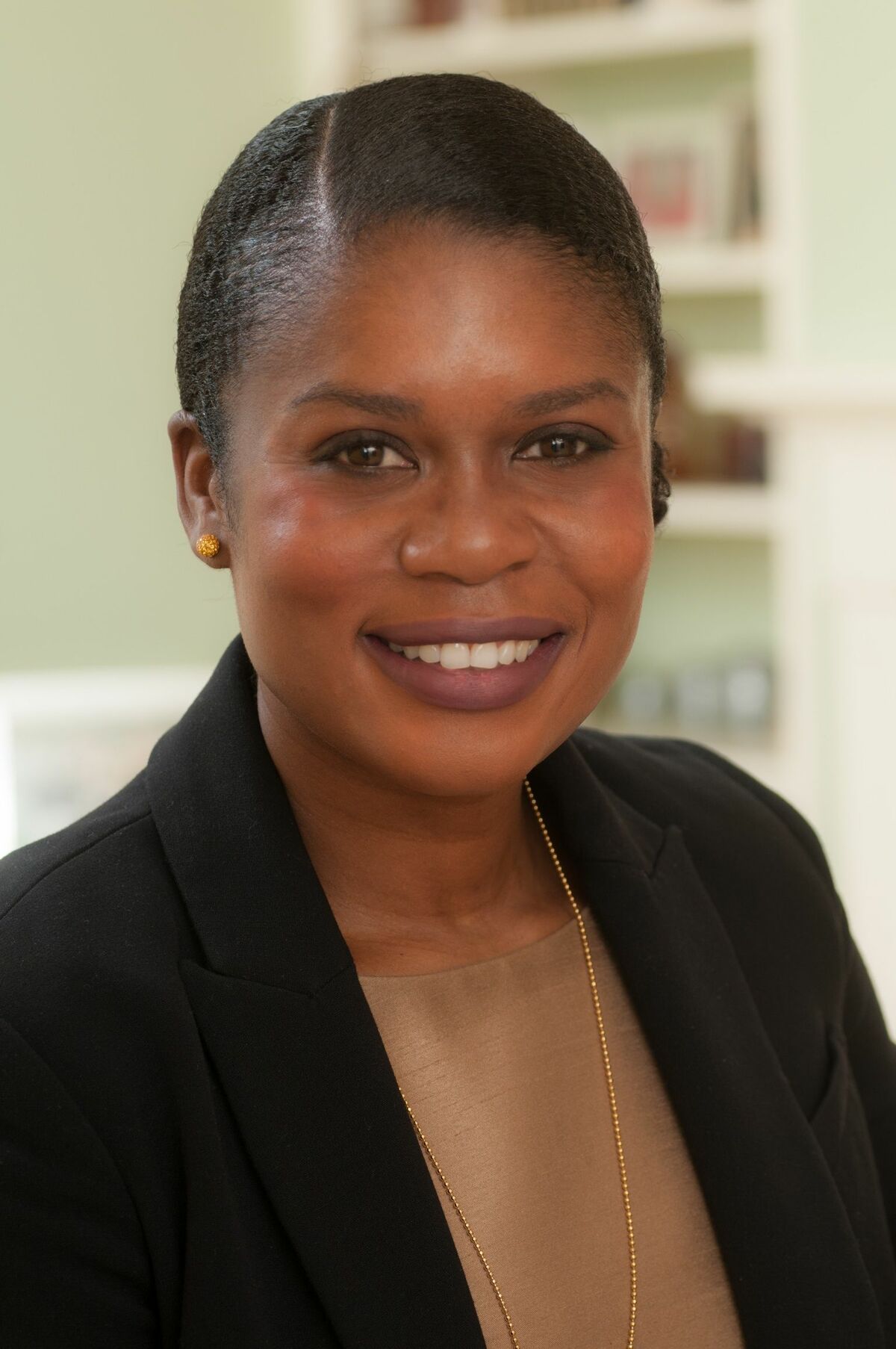“That minority parents do not care about their children”. So says Dr. Anita Jack-Davies, international Diversity Consultant and current Adjunct Assistant Professor, in the Department of Geography at Queen’s University. “I had Bachelor of Education students who were studying to become teachers actually write this in their essays!”
From 2002 to 2004, Dr. Jack-Davies taught in Toronto’s Jane-Finch community. The entire school was used as a Special Education model, which meant that every teacher was responsible for approximately 12 students and was tasked with elevating their Math and Reading proficiencies to standard levels. There, she became familiar with the reality of her students’ lives. For some students, poverty was a daily reality. Many students lived in homes with hardworking parents. But there were times when communicating with certain parents was a challenge. Her students also shared devastating moments in their lives whenever they lost a community member to violence and this meant that her role as a teacher was more multi-faceted than she had originally envisioned.
Dr. Jack-Davies realized the following:
1) Minority parents were extremely dedicated to their children, and cared a lot about them. They were often willing to provide much needed resources for their children, such as tutoring support.
2) No program aiming to uplift students could be complete without the participation of the parents. Therefore, it was integral to organize events where there would be discussions and the exchange of ideas.
3) Given the same kind of attention and mentoring that more financially privileged students generally received, inner-city students were capable of performing no differently.
As an example, Dr. Jack Davies recalls having a class of 35 students while teaching in Jane-Finch. Students emerged from countries as diverse as Somalia, Russia, Trinidad, Jamaica, Sri Lanka, Ghana and Nigeria. Recounting her own experience at that age, she encouraged them to be self-reflective and critical. They were directed to ask questions such as “Who am I? What community do I come from? What community do I live in now? Why are there parks and libraries in some areas and not in mine?”
This type of critical teaching led to one young man of Iranian descent (aged 12 to 13 at the time) to ask a Councillor with the City of Toronto during a class trip why there weren’t as many recreational facilities in the Jane and Finch community as in other areas of Toronto. Stunned, the Councillor stumbled and folded his arms and was at a clear loss for words. When the class debriefed afterwards, the young man piped-up, “Did you notice that the Councillor did not answer my question?” Dr. Jack-Davies had tears in her eyes, when she realized the impact she’d had on empowering this student. Later on, he moved with his family to the United States and in Grade 9 (his freshman year) was obtaining scores of 98 and 99. He wrote her a thank-you letter saying that her teaching methods had given him a solid foundation.
Dr. Jack-Davies’ insight is partly credited to her mixed upbringing as a child. She describes herself as having the “Obama syndrome.” Born to an Afro-Trinidadian mother in Toronto, she was sent to the island at a very young age to attend primary school. She lived with her maternal grandparents until she wrote the Common Entrance exam (formerly taken by students to gain admission into secondary schools). At the age of 12, her grandparents sent her back to Canada when it was discovered that she was legally unable to remain in Trinidad.
 At the time, her grandparents thought it was a good opportunity for her to return to Canada to ensure a better future for her at the university level. In Toronto, she found herself academically ahead of domestically-schooled Canadian students, due to the rigorous curriculum she had been taught in Trinidad. She also experienced culture shock in the classrooms, due to the nature of teacher-student relationships.
At the time, her grandparents thought it was a good opportunity for her to return to Canada to ensure a better future for her at the university level. In Toronto, she found herself academically ahead of domestically-schooled Canadian students, due to the rigorous curriculum she had been taught in Trinidad. She also experienced culture shock in the classrooms, due to the nature of teacher-student relationships.
In Canada, Dr. Jack-Davies found that children were held in higher esteem and accorded more rights. Parents were more open with them, so authoritarian divides were slippery. In Trinidad, the gulf between adults and children seemed to be more pronounced. Adulthood was a rite of passage, and there seemed to be a distinct period of time before one arrived there.
She first attended Father Henry Carr Secondary School in Rexdale, which she describes as a "multicultural, hockey school.” Fifty percent of the student population was Italian, and fifty percent came from diverse backgrounds. The instructors were very organized and had high academic expectations of the students. They assisted students in choosing courses and planning for university. Then, Dr. Jack-Davies made a decision which would prove to be momentous, and a catalyst for propelling her into the field of Education. In Grade 12, she chose to attend the public school, situated across the street from Father Henry Carr for one year and the experience was a shocking eye-opener.
At her new school, many of the Black students in her grade did not seem to have any concept of the courses they needed in order to qualify for university nor did they seem to have a clear path toward tertiary education. The expectations from the school’s administrators were also tellingly lower. Dr. Jack-Davies recalls a visit to her school’s Guidance Counsellor, who did not even look at her file when she inquired about university and instead, asked, "Do you even have the marks to get in to university?” She assured him that she did. He was flabbergasted when he saw that she had a 92 per cent average. Dr. Jack-Davies was astounded at the difference in the teaching approaches and the expectations of the administrators. She was keenly aware of the reality that being enrolled in the wrong school could change one’s trajectory.
Dr. Jack-Davies explicitly states: “My job as a minority teacher was to teach my students as if they were going to Harvard or Yale, rather than dumb-down the curriculum or simply babysit them.”
That said, teaching could be tough: Dr. Jack-Davies recalls a challenging young woman who arrived at the school. Davies describes the student’s response to her as “venomous”. After some time, Dr. Jack-Davies became exhausted, and had given up on reaching this student, when she heard the girl had become an avid reader. During her “time-outs” from the classroom, the girl had been going to the library and checking out books. One day, she said to Dr. Jack-Davies, “I really like you. I get you. I respect you.” The student had been testing her to see if she really cared. Dr. Jack-Davies advises to refrain from judging students too quickly and to avoid labelling them. “Remember: you are there for the long-haul. The dynamics of the teacher-student relationship can change if you are patient.”
So, are Canadian teachers equipped to deal with these realities? According to Dr. Jack-Davies, a lot depends on the training the teacher receives. For instance, when she was a student in the Faculty of Education at the University of Western Ontario, there was little discussion about issues of diversity and equity as part of the mandatory teaching curriculum. She did manage to enrol in one elective that examined multicultural issues; however, it was not a course that all students were required to take. In her experience, many teachers are able to graduate with a teaching degree with little or no knowledge about the challenges faced by low income and minority students in schools.
She recounts the story of heading an Equity committee while teaching in Jane-Finch where she tried to organize a weekend conference to deal with the underperformance of Black students that many of the teachers at the school were concerned about. However, she soon discovered that some teachers at the school did not support the focus on Black students. Dr. Jack-Davies found herself having to defend this focus on Black students to the “exclusion” of other pupils. She and her committee had to remind her colleagues that equity does not mean the equal application of policy. Equity is about identifying who is disadvantaged and bringing them up to standard.
Dr. Jack-Davies stresses that success in the classroom depends upon one’s mindset and pedagogy and the application of that pedagogy. Her company Jack-Davies Consulting proposes solutions for educators. These include the following tools and workshops:
• Strategic Planning for Leaders
• Curriculum Training & Development for Educators
• Bullying Prevention Strategies for Marginalized Students
• Effective Classroom Management Strategies for Urban Schools
• Saving/FACE: A Conflict Resolution Program for Urban Teens & Educators
• Youth with Purpose Canada: A Life-Skills & Wellness Program
• Parent Advisory Education & Support
“Saving/FACE: A Conflict Resolution Program for Urban Teens & Educators” is about involving teens and educators in the peaceful resolution of disagreements. Part of it involves the recognition that being strong sometimes means walking away from a conflict. It also interrogates the cultural differences amongst us, and tries to shed light on them. For instance, in the Caribbean it’s normal to use figures of speech such as “I’ll kill you with licks.” Whilst not appropriate or acceptable, it’s not grounds for calling in the police or labelling someone as ‘dangerous’ or ‘threatening.’ This program also explores the notion of respect as being a two way street? Do teachers respect the students in the same way they expect to be respected? What kind of language is used in the classroom by teachers? Is the phrase “You people” ever uttered? What type of culture is being set up in the classroom and how do the students experience that culture?
“Parent Advisory Education & Support” aims to help parents and local communities if they need it. It involves topics such as how to navigate the school system and ensure success. For instance, how to cultivate relationships with teachers and deal with getting called in to schools. (Dr. Jack-Davies advises to always bring in a witness for support). It helps demystify some of the language used by educators that some parents might not comprehend. It also teaches them how to express their confusion about issues they might encounter.
“Strategic Planning for Leaders” involves advisory support to administrators on issues of equity and inclusion.
“Curriculum Training and Development for Educators” was created in mind for those teachers who were not exposed to diversity and anti-racist training. It covers topics such as how to adapt curriculum to the needs of students, commonly referred to as Culturally Relevant Pedagogy (CRP ).
For more information on Jack-Davies consulting, visit dranitajackdavies.com.










